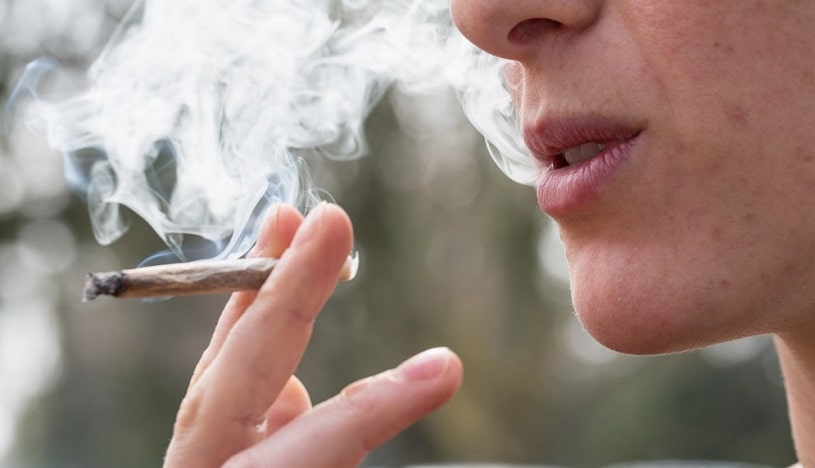Marijuana may have a reputation for being a benign drug, but one can develop overdose symptoms from using too much of it. Although it is less dangerous than other often-abused drugs, even the best marijuana strains are not completely safe because of the chances of marijuana overdose.
Table Of Contents:
Can You Overdose On Weed?
While weed (also called pot among other names) may be less toxic than other drugs of abuse, one could overdose on weed when one uses too much of it. Although marijuana overdose has not been shown to cause death directly, it may cause very severe, uncomfortable symptoms such as vomiting, nausea, psychotic reactions (delusions and hallucinations), and anxiety, requiring a visit to the emergency room.

Marijuana overdose can occur with any method of using the drug. However, in preteens and teens, the bad reaction to cannabis is most commonly associated with eating marijuana edibles. This is because it takes longer for one to start experiencing the effects of marijuana, so in an attempt to get high faster, these individuals tend to ingest large amounts of pot. This results in marijuana edible overdose symptoms. However, adults who smoke the substance, especially extracts like marijuana shatter, are more likely to develop toxic symptoms because of its fast delivery to the brain.
THC Overdose Amount
There is no fixed amount that is enough to cause THC poisoning. Some people tolerate marijuana, while others don’t. How much weed will cause OD varies for different individuals. It also depends on several factors, including an individual’s tolerance levels, body size, and use with other drugs of abuse or alcohol. Moreover, various marijuana strains have different potency, which makes a “bad reaction” to cannabis unpredictable, especially in case of edibles. Edibles take longer to kick it, which results in individuals taking more to achieve the desired effect. High amounts of THC in cannabis can also cause an overdose in inexperienced users.
Is It Possible for Marijuana Overdose to Cause Death?
THC overdose is unlikely to lead to death directly because tetrahydrocannabinol (THC) receptors are not present in the brainstem – the part of the brain that controls and regulates the heart rate and respiration – therefore, it is unlikely to be a direct cause of death.
However, weed overdose can cause death indirectly through its effects on the brain., For example, when a user drives under the influence of THC overdose, such person may experience incoordination, as well as impaired judgment and perception, which may predispose them to accidents, injuries, and, in turn, death.

Also, excessive use of cannabis could lead to emotional and psychological disturbances, presenting as paranoia and suicidal tendencies.
Some studies also show that one would have to consume about 40,000 times the usual dose of weed in one cannabis cigarette to die from it. In other words, this would require a smoker to consume nearly 1,500 lbs. (680 kg) of pot in 15 minutes to cause a fatal outcome. This is why deaths from weed have not been reported.
However, THC poisoning from consuming too much weed in combination with other drugs of abuse, such as opioids and alcohol, may accentuate some of these drugs’ effects, causing death. Under these circumstances, some of these drugs may also cause severe heart disturbances and blood pressure changes that could cause death.
Signs and Symptoms of Weed Overdose
When a person uses too much cannabis, it may lead to a temporary array of marijuana overdose symptoms, and the individual is said to “green out.” These symptoms last a couple of hours and resolve spontaneously afterward. It is important to note that these symptoms do not result in permanent disability or death and are more common in new users or old users who had more than enough.
Some Of The Signs And Symptoms Of Weed Overdose Include:
- Disorientation
- Hallucinations
- Extreme confusion
- Fast heart rate
- Shortness of breath
- Shakiness
- Mood changes
- Increased appetite
- Vomiting and/or nausea
- Temporary feelings of paranoia and anxiety
- Altered sense of perception, such as seeing bright colors
- Delusions
Risk Factors for Weed Overdose
Certain factors determine how much weed an individual’s body can handle before developing overdose symptoms. These risk factors influence how pot is metabolized in the body and, in turn, how long it stays in the system.
Some Of These Factors Include:
- The frequency of use: It goes without saying that the more frequently a person uses weed, the more the substance accumulates in the body. This is because cannabis binds to fat cells. Therefore if an individual uses it frequently, it stores up continuously and takes longer to get rid of from the body. This poses a higher risk of developing the negative effects of marijuana
- The amount taken: The larger the amount of cannabis consumed, the longer it stays in the system and the higher the OD risk from weed. The dose in marijuana tinctures is often small, so it is not commonly associated with OD unless consumed in large quantities.
- Route of administration: Cannabis reaches the system much faster when it is smoked or vaped using marijuana pens than through other methods of use
- Weight and body type: People who are overweight or obese will eliminate pot from the body at a much slower rate compared to those who have normal weights. This is because THC, the active ingredient of cannabis, deposits in fat cells. This results in a much longer duration for overweight or obese persons
- The rate of metabolism: The liver's rate of breaking down chemicals differs between people. There are slow metabolizers and fast metabolizers. Slow metabolizers of pot break down the substance slowly, unlike fast metabolizers. Therefore, in slow metabolizers of weed, the substance stays for a long period and increases the risk of THC overdose
Helping Someone with an Overdose On Weed
Typically, marijuana overdose doesn’t cause any life-threatening effects and passes relatively quickly. As deaths from weed are unheard of, in most cases, it doesn’t require medical help. However, concomitant use of marijuana with other drugs or alcohol can worsen the adverse reaction and might need medical assistance. If you come in contact with someone with a suspected cannabis overdose, take the following steps to save the person’s life.
- Call 911 or a local drug helpline for treatments of substance addicts immediately
- Stay with the person until emergency help arrives
- Ensure the person remains well hydrated
- Avoid confronting the person to avoid inciting aggressive behavior of the individual
Such individuals will be referred to drug abuse rehab facilities to help them detox from the substance.
Quitting marijuana use is the main step to fighting the addiction and avoiding any bad reactions. Those suffering from marijuana use disorder must seek professional help in addiction treatment centers and drug abuse rehab facilities, where medical personnel can help ease the detox process and provide support during unpleasant withdrawal symptoms.
Page Sources
- National Institute On Drug Abuse. Marijuana DrugFacts. 2019. https://www.drugabuse.gov/publications/drugfacts/marijuana
- National Cancer Institute. Cannabis and Cannabinoids (PDQ®)–Health Professional Version. https://www.cancer.gov/about-cancer/treatment/cam/hp/cannabis-pdq#section/all?redirect=true
- Michelle O’Dea. Medicinal Cannabis. https://www.lawreform.vic.gov.au/sites/default/files/Submission_95_Cannabis_Community_of_Victoria_07-06-15.pdf
- Centers for Disease Control and Prevention. Is it possible to “overdose” or have a “bad reaction” to marijuana? 2018. https://www.cdc.gov/marijuana/faqs/overdose-bad-reaction.html
- Brian F. Kelly; Thomas M. Nappe. Cannabinoid Toxicity. 2020. https://www.ncbi.nlm.nih.gov/books/NBK482175/

 Authored by
Authored by  Reviewed by
Reviewed by 
